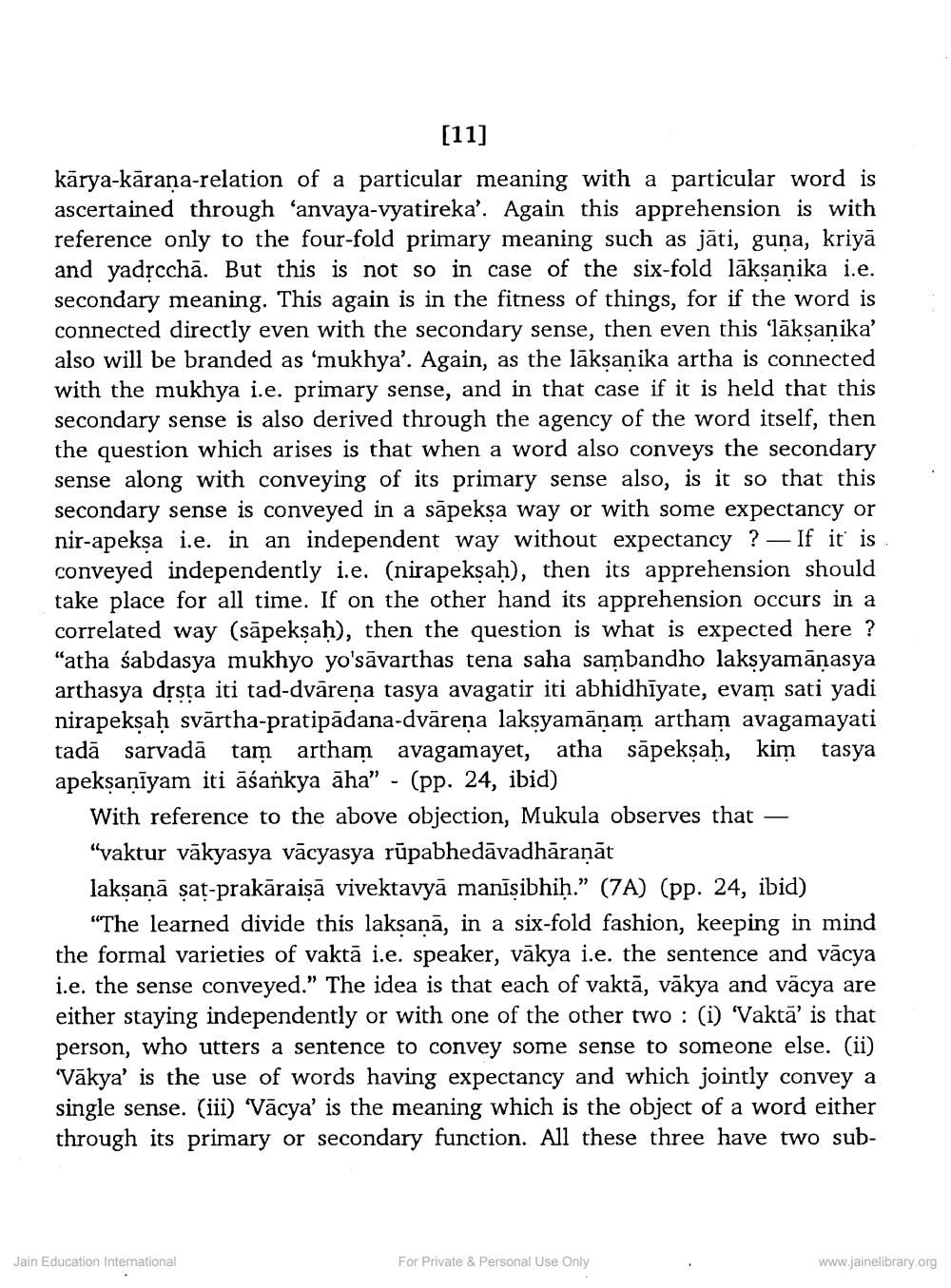________________
[11]
kārya-kāraṇa-relation of a particular meaning with a particular word is ascertained through 'anvaya-vyatireka'. Again this apprehension is with reference only to the four-fold primary meaning such as jāti, guna, kriyā and yadrcchā. But this is not so in case of the six-fold lākṣanika i.e. secondary meaning. This again is in the fitness of things, for if the word is connected directly even with the secondary sense, then even this ‘lākṣaṇika' also will be branded as 'mukhya'. Again, as the lāksanika artha is connected with the mukhya i.e. primary sense, and in that case if it is held that this secondary sense is also derived through the agency of the word itself, then the question which arises is that when a word also conveys the secondary sense along with conveying of its primary sense also, is it so that this secondary sense is conveyed in a sāpeksa way or with some expectancy or nir-apeksa i.e. in an independent way without expectancy ? — If it is conveyed independently i.e. (nirapeksah), then its apprehension should take place for all time. If on the other hand its apprehension occurs in a correlated way (sāpekṣaḥ), then the question is what is expected here ? "atha sabdasya mukhyo yo'sāvarthas tena saha sambandho laksyamāṇasya arthasya drsta iti tad-dvāreņa tasya avagatir iti abhidhīyate, evam sati yadi nirapekṣaḥ svārtha-pratipādana-dvāreņa laksyamāņam artham avagamayati tadā sarvadā tam artham avagamayet, atha sāpekṣaḥ, kim tasya apeksanīyam iti āśańkya āha” - (pp. 24, ibid)
With reference to the above objection, Mukula observes that — "vaktur vākyasya vācyasya rūpabhedāvadhāraṇāt laksaņā sat-prakāraisā vivektavyā manīsibhiḥ.” (7A) (pp. 24, ibid)
"The learned divide this lakṣaṇā, in a six-fold fashion, keeping in mind the formal varieties of vaktā i.e. speaker, vākya i.e. the sentence and vācya i.e. the sense conveyed." The idea is that each of vaktā, vākya and vācya are either staying independently or with one of the other two : (i) 'Vaktā' is that person, who utters a sentence to convey some sense to someone else. (ii) Vākya' is the use of words having expectancy and which jointly convey a single sense. (iii) Vācya' is the meaning which is the object of a word either through its primary or secondary function. All these three have two sub
Jain Education International
For Private & Personal Use Only
www.jainelibrary.org




